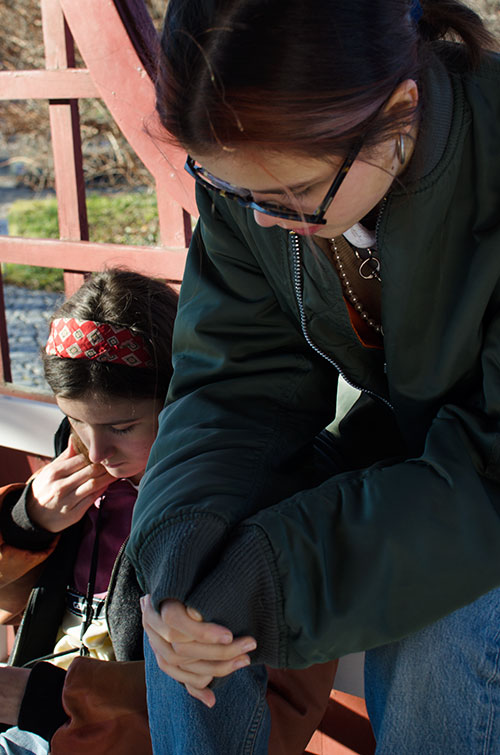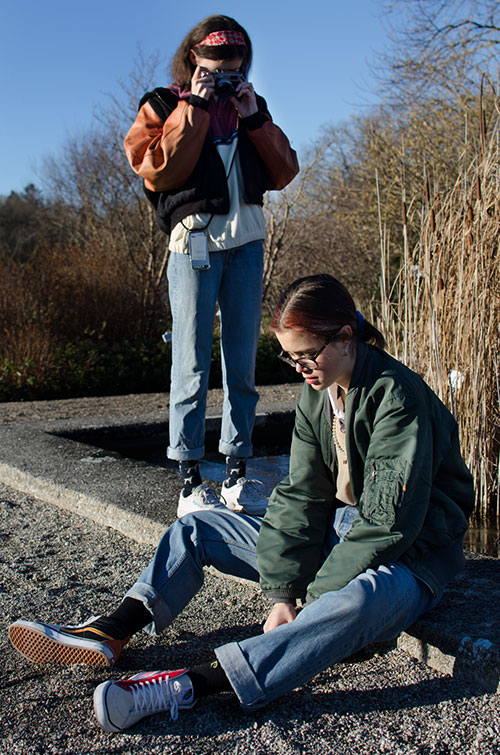
Olivia and her sister Eleni are almost 15 and 17. They go to the same school. In this school, at least half of the children have a migration background of any kind. The class list reads very international. They are friends with children whose parents come from India, South Korea, China, Poland or Bavaria. Neither of them has ever used origin as a characteristic in conversation. When they describe who they are talking about, they say things like ‘the one who was with me during the exchange, who drew the beautiful cards at the Christmas bazaar…’. The hairstyle is described, the way they dress, who they are friends with, what hobbies they have. Never the skin colour or a parent’s migration background is mentioned. It just doesn’t occur to them. Only when they’re there for dinner and the mother cooks a delicious Indian meal. For both of them the origin is not relevant as a characteristic, it is normal that people have different roots. Racism is not an issue. Olivia, for example, was born in England. You can’t tell by looking at her. Her friend, whose parents are from India, was born in Germany, you can’t tell by looking at her. It doesn’t matter. They are all students who attend a school in Munich. When the attacks in Hanau went through the press, Olivia asked me why the media keeps talking about ‘attacks against foreigners’. ‘But they weren’t foreigners’ she said. She is right and I was struck by how naturally the terms are used in our press and also by myself. That we exclude the victims from our society, that we call those people foreigners. People who live and work in Germany, who have families and friends here, who have grown up in this country, how can they be foreigners? I am ashamed. All people who see Germany as their home are Germans, whether they have a German passport or not, whether they were born here or not, whether they call an additional country their home, too, or not. Who are we to decide who is foreign. I am sure there will be more and more schools and kindergartens like Olivia’s and Eleni’s school. And more and more children and young people who are like the two sisters and their friends. Who describe a child by the color of its bike and not by its skin. After the attacks, people from the neighborhood were interviewed and one of them said, ‘No matter who it hit, man is man, whoever kills one man kills all mankind’. That’s how I feel, it’s not the others, it’s us.
Olivia wears her mom’s vintage Levi’s 501, her dad’s vintage bomber jacket, a huge men’s jumper from a fleamarket, Vans sneakers and DIY necklaces from a hardwear store. Eleni wears jeans by and other stories, a bomber jacket from a fleamarket, a Carhartt sweater, hand-me-down Reebok sneakers from Vincent and her dad’s camera.









 DE
DE

